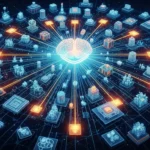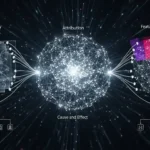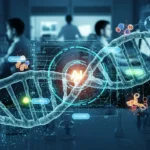In the ever-evolving education landscape, one technology has emerged as a transformative force, reshaping the way students learn and educators teach with Artificial intelligence (AI): AI Tutoring Systems. These innovative platforms leverage the power of artificial intelligence to provide personalized, adaptive, and interactive learning experiences. As we delve into the realm of AI tutoring systems, we uncover their potential to revolutionize education and empower learners in unprecedented ways.
The Essence of AI Tutoring Systems
At its core, an AI tutoring system is a software application that employs AI algorithms to provide individualized instruction and support to learners. These systems gather data on students’ performance, preferences, and learning styles, creating tailored learning paths that adapt to each individual’s pace and needs. It facilitates a dynamic and engaging learning environment through interactive exercises, quizzes, simulations, and real-time feedback.
The power of AI tutoring systems lies in their ability to personalize education at scale. Traditional classroom settings often struggle to accommodate each student’s diverse learning needs. The systems offer the solutions by delivering content, assessments, and guidance uniquely suited to each learner’s strengths and challenges.
Enhancing Learning Outcomes and Accessibility
The impact of AI tutoring systems extends across various levels of education, from K-12 to higher education and professional development. It enhances learning outcomes by tailoring content and pacing to each student’s proficiency level. Students receive targeted assistance in areas where they struggle while being able to accelerate in subjects where they excel, fostering a sense of mastery and accomplishment.
Moreover, AI tutoring systems promote inclusivity and accessibility. Content adapted to learners’ needs benefits learners with different learning styles, disabilities, or language backgrounds. These systems break down barriers, providing equitable learning opportunities for all students, regardless of their circumstances.
In addition, it empowers educators. By automating routine administrative tasks and providing insights into student progress, these systems allow teachers to focus more on individualized instruction, mentorship, and fostering critical thinking skills.
Balancing Automation and Human Interaction
While AI tutoring systems offer immense potential, they also raise challenges that need careful navigation. One concern is striking the right balance between automation and human interaction. While AI systems can provide personalized learning experiences, human teachers uniquely understand student emotions, motivations, and socio-emotional needs. Ensuring that AI tutoring systems complement, rather than replace, human educators is crucial for maintaining the human touch in education.
Ethical considerations also come into play. Data privacy and security questions emerge as AI tutoring systems collect and analyze vast amounts of student data. Protecting students’ personal information and ensuring data is used responsibly and transparently is paramount.
Shaping the Future of Education with AI
As AI tutoring systems continue to reshape education, several strategies can ensure their potential is maximized while their challenges are addressed. Continuous improvement and adaptability are essential. It should be regularly updated and refined based on real-world feedback and evolving educational needs. The ability to incorporate new pedagogical approaches, technologies, and insights ensures that these systems remain relevant and effective.
Collaboration and engagement with educators are key. It should be designed in partnership with teachers and educational experts. Their insights and feedback are invaluable in developing systems that align with educational goals and teaching philosophies. Ethical guidelines and transparency are paramount. Organizations developing AI tutoring systems should adhere to ethical guidelines prioritizing data privacy, transparency, and accountability. Students, teachers, and parents should know how data is collected, used, and protected.
The influence of AI tutoring systems reaches beyond the confines of traditional classrooms. They promise to democratize education, bridge educational gaps, and foster a lifelong love of learning. Yet, as with any transformative technology, the path forward requires careful consideration of ethical implications, human-centered design, and collaborative partnerships.
Conclusion
As we embark on a journey into the world of AI tutoring systems, we find ourselves on the precipice of a new era in education—one characterized by personalization, accessibility, and collaboration. These systems, driven by the power of artificial intelligence, amplify the capabilities of educators and offer students a learning experience tailored to their unique needs and aspirations.
In the symbiotic relationship between AI tutoring systems and human educators, we glimpse the future of education—one where technology and human expertise unite to create a dynamic, engaging, and inclusive learning environment. As we navigate this educational landscape, we can shape a future where every learner can unlock their full potential and embark on a lifelong learning journey guided by the synergy of human wisdom and technological innovation.





